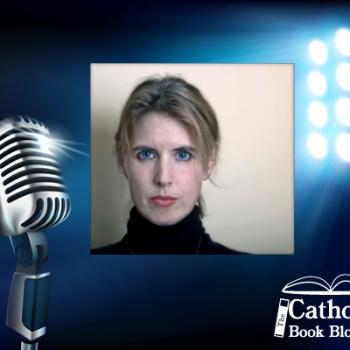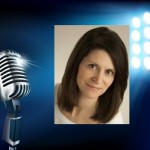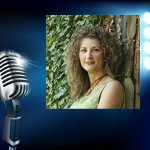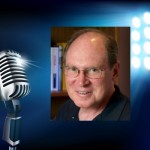 PETE: How difficult was it for you to write Gay and Catholic: Accepting My Sexuality, Finding Community, Living My Faith and be so open about your story and struggles?
PETE: How difficult was it for you to write Gay and Catholic: Accepting My Sexuality, Finding Community, Living My Faith and be so open about your story and struggles?
EVE TUSHNET: I didn’t really have a choice. I’d tried several times to write a version of this book, but I always stalled out, I think largely because I was still drinking and wasn’t able to be honest about my alcoholism. I didn’t want to write about that, but the book rang very false to me without it–it was shallow and coy. Once I quit drinking I was able to write more honestly not only about the drinking itself but about everything else, and that made it possible to finish the book.
PETE: Who is your target audience for this book?
EVE TUSHNET: The bull’s-eye of the target is people like me: actual gay people who belong to Christian churches which hold the historical Christian sexual ethic. People who need to know *how* they can lead fruitful, loving lives within Church teaching. I tried to write the book I wished I’d been able to read when I converted.
But the other circles of the target include people who want to explore vocations outside marriage and religious vows; people who want to strengthen their friendships, and help our society see friendship as a potential form of kinship; people who want our churches to be places of refuge and welcome for gay people, rather than places of conflict and suspicion; and people who want to understand why any self-respecting gay person would subject herself to the dogmas of the Catholic Church. I’ve been surprised and very grateful for the many married people who have told me that the book has helped them understand their own vocations.
PETE: This one is for those who have not read your book yet and are not familiar with you and your work. You are a self-indentified homosexual who has chosen to lead a celibate life. What reactions do you get from people, both gay and straight, when they learn of your unconventional approach?
EVE TUSHNET: Ah, there are as many different responses as there are people! Many people are intrigued by the idea that friendship and service can be forms of love as real and rich as marriage. (These are forms of love which Jesus Himself experienced, unlike marriage and parenting.) Some people basically think it’s fine to be celibate if that’s what you’re personally called to, but it shouldn’t be required of all gay people. Some people think I’m “really” just asexual. There are people for whom the gay thing is the weird part, and people for whom the Catholic thing is the weird part. Life is a cornucopia….
PETE: Society tends to put the focus on gay parades and demonstrations and spin them in an almost militant way yet largely ignore someone as yourself who has chosen to live life within the teachings of the Church and your Catholic faith. Why do you think that is?
EVE TUSHNET: Parades are public and look great! I wish the Church did more parades. More seriously, I think society is starting to see celibate gay Christians more as we come out of the closet and begin talking openly about our lives. The more we tell our own stories, the more people will be able to recognize us–or even imagine that we exist. This is a very slow process but I’m already seeing it happen, through blogs like Spiritual Friendship, articles in publications like Slate and the New York Times, and storytelling, like the lovely movie “Desire of the Everlasting Hills.”
PETE: What is your greatest hope for this book?
EVE TUSHNET: More than anything, I hope this book reaches younger people–teens and young adults–who are gay and Christian, and wondering if there is any future for them in the Church, or if all that lies ahead of them is a blank lonely wilderness. I hope they see that a future full of love is just as possible for them as it is for their straight or secular peers.
PETE: Time for my signature ending question. This is a blog about books. What is currently on your bookshelf to read?
EVE TUSHNET: I’m currently reading Tess Slesinger’s “The Unpossessed,” a novel of the 1930s. I’m only about 40 pages in, though, so I don’t have much of an opinion. Just finished John Darnielle’s “Wolf in White Van,” which is powerful and sad; not sure what I’ll read after the Slesinger, but maybe “The Folded Leaf” by William Maxwell.
_______________________________________________________________________________________________________











